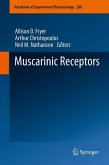In recent years, the need to develop acceptable alternatives to conventional animal testing for neurotoxicity and developmental neurotoxicity has been increasingly recognized, and much effort is being directed toward the development of alternative models, utilizing mostly mammalian cells in culture but also non-mammalian model systems. In Vitro Neurotoxicology: Methods and Protocols presents a series of cellular, biochemical, and molecular methodological protocols in the area of in vitro neurotoxicology, with an emphasis on mammalian cell culture systems. Opening with a section on methodologies for preparing several cellular systems of variable complexity, amenable for in vitro neurotoxicological studies, the thorough volume continues with coverage of methods to measure cellular death and major mechanisms, methods for assessing mechanisms of nervous system cell toxicity related to impairment of cell signaling, while a final section illustrates additional methods for assessing important nervous system processes such as cell proliferation, neuritogenesis, and synaptogenesis. Written in the highly successful Methods in Molecular Biology(TM) series format, chapters include introductions to their respective subjects, lists of the necessary materials and reagents, step-by-step, readily reproducible laboratory protocols, and tips on troubleshooting and avoiding known pitfalls.
Comprehensive and cutting-edge, In Vitro Neurotoxicology: Methods and Protocols serves researchers with an interest in assessing or characterizing the potential neurotoxicity of environmental contaminants, drugs, or other chemicals.
Comprehensive and cutting-edge, In Vitro Neurotoxicology: Methods and Protocols serves researchers with an interest in assessing or characterizing the potential neurotoxicity of environmental contaminants, drugs, or other chemicals.
From the reviews: "This volume ... is a concise review of cellular, biochemical, and molecular methodological protocols for diverse areas of in vitro neurotoxicity studies. ... This collection will be useful to those who are interested in studying the neurotoxicity of environmental contaminants, drugs, or other chemicals. Specifically, it will be of value to graduate students, postdoctoral fellows, and faculty in academia. ... The book also provides useful methodological guidelines and examples that will be helpful to researchers who are relatively new to this field." (Bao Ting Zhu, Doody's Book Reviews, December, 2011)
From the book reviews:
"The variety of fresh and effective laboratory techniques makes this attractive book a necessary companion for researchers, teachers and students in this field. The editors ought to be commended for bringing together into a single, easy-access volume information on so abstruse a topic as in vitro neurotoxicology. The lay-out of the book as well as the clear and high resolution diagrams and plates are some of the most attractive attributes ... ." (Jolocam Mbabazi, International Journal of Environmental Studies, Vol. 69 (6), 2012)
"This volume ... is a concise review of cellular, biochemical, and molecular methodological protocols for diverse areas of in vitro neurotoxicity studies. ... This collection will be useful to those who are interested in studying the neurotoxicity of environmental contaminants, drugs, or other chemicals. Specifically, it will be of value to graduate students, postdoctoral fellows, and faculty in academia. ... The book also provides useful methodological guidelines and examples that will be helpful to researchers who are relatively new to this field." (Bao Ting Zhu, Doody's Book Reviews, December, 2011)
"The variety of fresh and effective laboratory techniques makes this attractive book a necessary companion for researchers, teachers and students in this field. The editors ought to be commended for bringing together into a single, easy-access volume information on so abstruse a topic as in vitro neurotoxicology. The lay-out of the book as well as the clear and high resolution diagrams and plates are some of the most attractive attributes ... ." (Jolocam Mbabazi, International Journal of Environmental Studies, Vol. 69 (6), 2012)
"This volume ... is a concise review of cellular, biochemical, and molecular methodological protocols for diverse areas of in vitro neurotoxicity studies. ... This collection will be useful to those who are interested in studying the neurotoxicity of environmental contaminants, drugs, or other chemicals. Specifically, it will be of value to graduate students, postdoctoral fellows, and faculty in academia. ... The book also provides useful methodological guidelines and examples that will be helpful to researchers who are relatively new to this field." (Bao Ting Zhu, Doody's Book Reviews, December, 2011)









